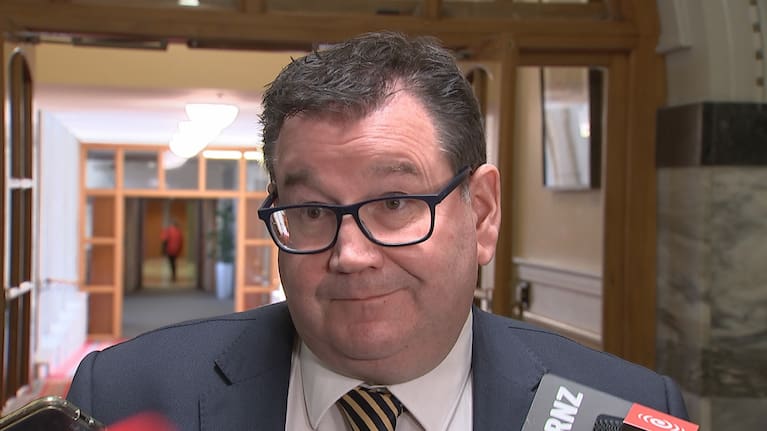Banks are reporting record profits - despite rocky financial times ahead - triggering calls for the Government to step in and introduce a windfall tax on excess profits.
It comes as Reserve Bank Governor Adrian Orr has been re-appointed for another five-year term - a move that prompted loud criticism in Parliament today.
Last week, the country's largest bank, ANZ, posted a full-year profit of just over $2 billion - up 8%. Meanwhile, ASB had an 11% rise to $1.4 billion, while in their half-year results, Westpac and BNZ had profit increases as well.
Finance Minister Grant Robertson said people would be "asking questions" when they "see the size of profits that banks" have gotten.
"This is a very difficult time for many people and - when they see the size of profits that banks have got - they will be asking questions about that."
Meanwhile, National leader Christopher Luxon said the profits would be "pretty tough to stomach" for Kiwis but that the "Government has to take accountability" for the situation.
The Green Party has called for excess corporate profits to be taxed - otherwise known as a windfall tax. The system is typically used when companies bring in profits from situations that aren't their own making - like a war.
The party's finance spokesperson Julie Anne Genter said it was appropriate for companies to contribute more to the "public good" while Kiwis were struggling.
"It's a time when Kiwis are really struggling with rising prices. It's appropriate for them to contribute more to the public good and it's the government's responsibility to make that happen."
A windfall profits tax on banks already exists in Australia and has previously been used in the UK.
Finance spokesperson Julie Anne Genter told Q+A big companies are "raking in record profits" while others go hungry.
Business commentator and journalist Bernard Hickey, who supports a windfall tax on bank profits, said the institutions had profited "extraordinarily" during the pandemic.
"In this case, the banks have profited extraordinarily because of the Government's actions during Covid, and now the Reserve Bank's tightening of monetary policy."
Hickey, who writes The Kākā newsletter, added that the banks could absorb a windfall tax while still making money.
"Remember they're making $7 billion a year. If they had to give up $2.5 billion of it to the government - they'd still be making $4.5 billion a year."
But the Finance Minister pushed back on the policy suggestion. Robertson said he wasn't convinced Covid was significant enough to trigger the need for a windfall tax.
"There isn't enough evidence to me to demonstrate that, because bank profits have been high for some considerable time in New Zealand."
The National Party has been calling for an independent investigation into monetary policy by the Reserve Bank to see how it contributed to inflation. But Luxon said windfall taxes could "get difficult."
"Windfall taxes get difficult because it creates a chilling effect on people's ability to invest," he said. "You also do want our banks to be strong, particularly over the next two to three years, as we go through difficult times."
Reserve Bank continuity needed - Robertson
Meanwhile, the National leader said he was "shocked" by the reappointment of Reserve Bank Governor Adrian Orr.
The move was also criticised by ACT leader David Seymour who said "Labour just handsomely rewarded one of the architects of the cost of living crisis."
Robertson argued that "continuity and stability" were important for the Reserve Bank when asked to defend the decision.
"This has been a time of significant disruption, and I think continuity and stability is important," the Finance Minister said.

"For all of those reasons, I was happy to accept the board's recommendation."
Meanwhile, the opposition's actions have shocked Hickey, who said imposing a review on the Reserve Bank would be "unprecedented."
"It's extraordinary to have a potential prime minister and finance minister - a year out from that role - being so aggravated in their approach to the Reserve Bank," the business commentator said.
"It's unprecedented for New Zealand's relations between our politics and our Reserve Bank - which is supposed to be independent."





















SHARE ME